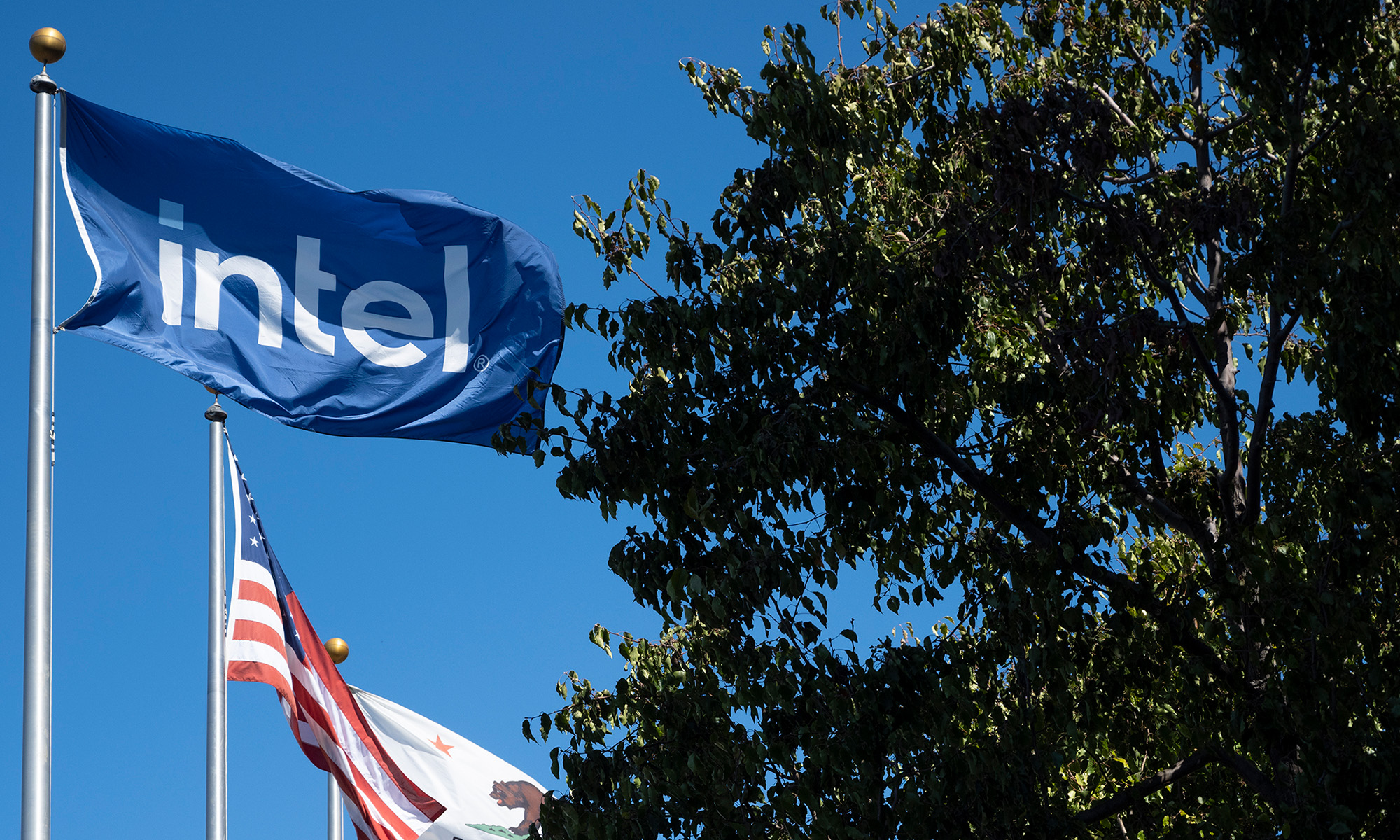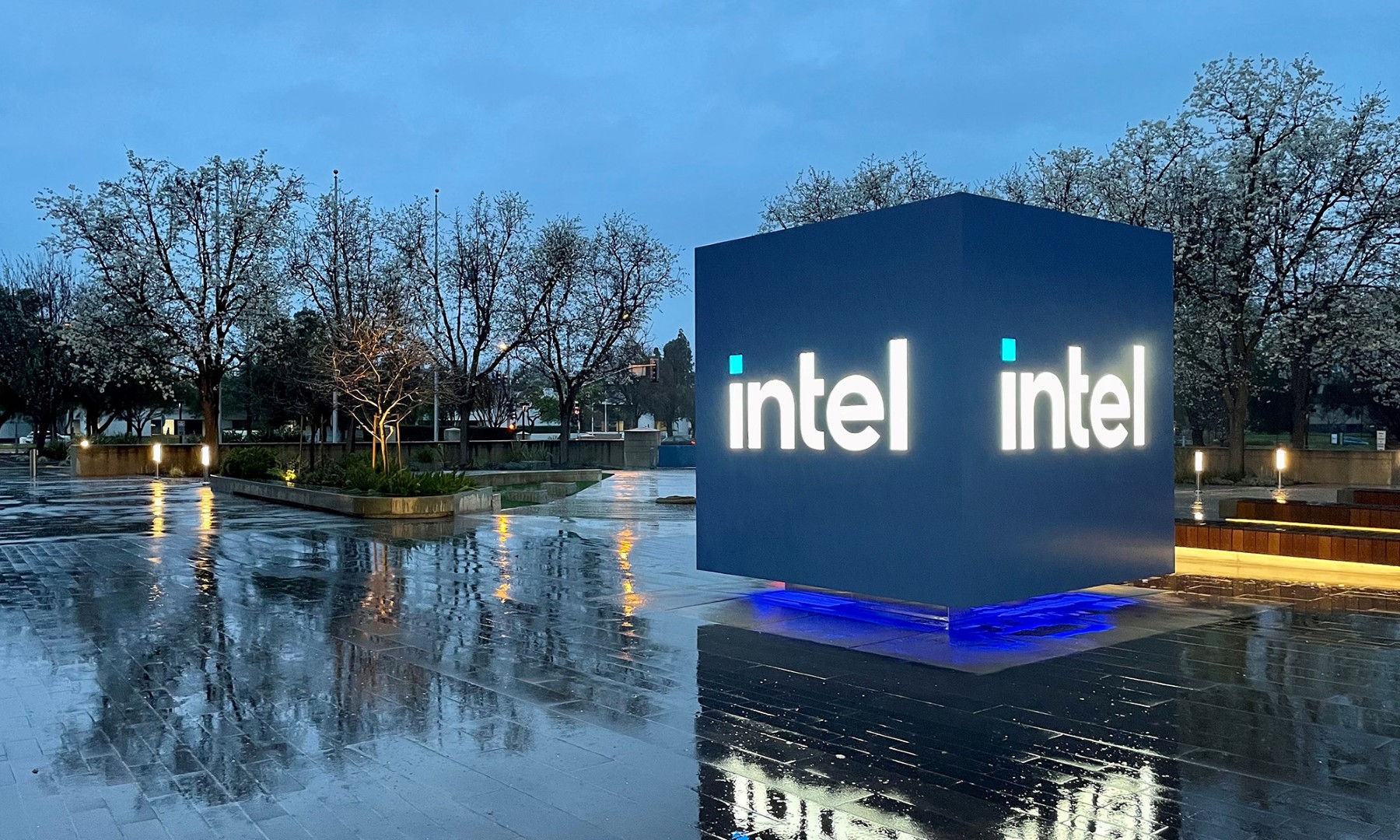Chip giant Intel (INTC +7.29%) has a good capital return program. The company pays a solid (and growing) dividend, and it has been repurchasing significant amounts of stock over the years. Last quarter alone, Intel spent $1.9 billion to repurchase 41 million of its own shares.
According to its most recent earnings release, Intel has $11.3 billion remaining on its current stock repurchase program -- though the company's board of directors can always authorize another program or an extension to the current one.

Image source: Intel.
A lot of companies use these programs to buy back just enough stock to offset dilution from things like employee stock options and restricted stock units, but Intel's efforts have been more aggressive than that over the last eight years. Since the end of 2010, Intel's diluted share count has come down from 5.698 billion shares to 4.790 billion shares -- a reduction of nearly a billion shares in less than eight years.
Let's go over what that share count reduction has meant for Intel stockholders and what the future of Intel's share repurchase program holds.
A solid earnings per share boost
For the entirety of 2017, Intel generated $16.8 billion in non-GAAP net income. If we divide that figure by Intel's current diluted share count, we get $3.51 in diluted earnings per share.
If we take that same $16.8 billion figure but divide it by the number of shares Intel had outstanding at the end of 2010, we'd get a non-GAAP earnings per share value of just $2.95. This means Intel's stock repurchase program, by itself, has led to a 19% boost in earnings per share since the end of 2010.
That's a pretty big deal.
The future of Intel's stock repurchase program
While Intel's stock repurchase activity has helped to dramatically boost its profitability on a per-share basis, I don't think the company will be as aggressive in repurchasing shares going forward as it has in the past.
At the company's analyst day in early 2017, Intel CFO Bob Swan said the company's first priority with its capital is "invest in the business." This means making sure research and development expenses are paid for, capital expenditures are taken care of, and appropriate mergers and acquisitions can be pursued.
With the excess, though, Swan indicated that the company hopes to grow its dividend alongside its non-GAAP earnings per share, and it aims to, at a minimum, offset dilution with its stock repurchase program.
To me, it seems like stock repurchases -- outside of the bare minimum that's required to keep the share count from ballooning -- aren't that big of a priority for the company.
On one hand, this might be disappointing to investors who liked the accretion to earnings that the buyback has delivered over the years. However, I think shareholders overall would prefer large and increasing dividends to share buybacks, and I don't think any Intel stockholder would prefer that the company sacrifice its long-term investments in the business in favor of these repurchases.
Intel's ultimate goal is to increase its revenue and earnings per share by as much as possible since that's the best way to deliver a higher stock price. Share buybacks are one way to do it, but generally speaking, if a company can deliver earnings per share growth through stronger business performance, that's usually a better -- and frankly, more sustainable -- way to do things. From where I'm sitting, Intel's capital allocation program makes a lot of sense.





